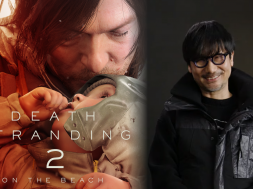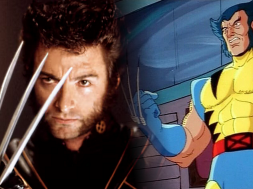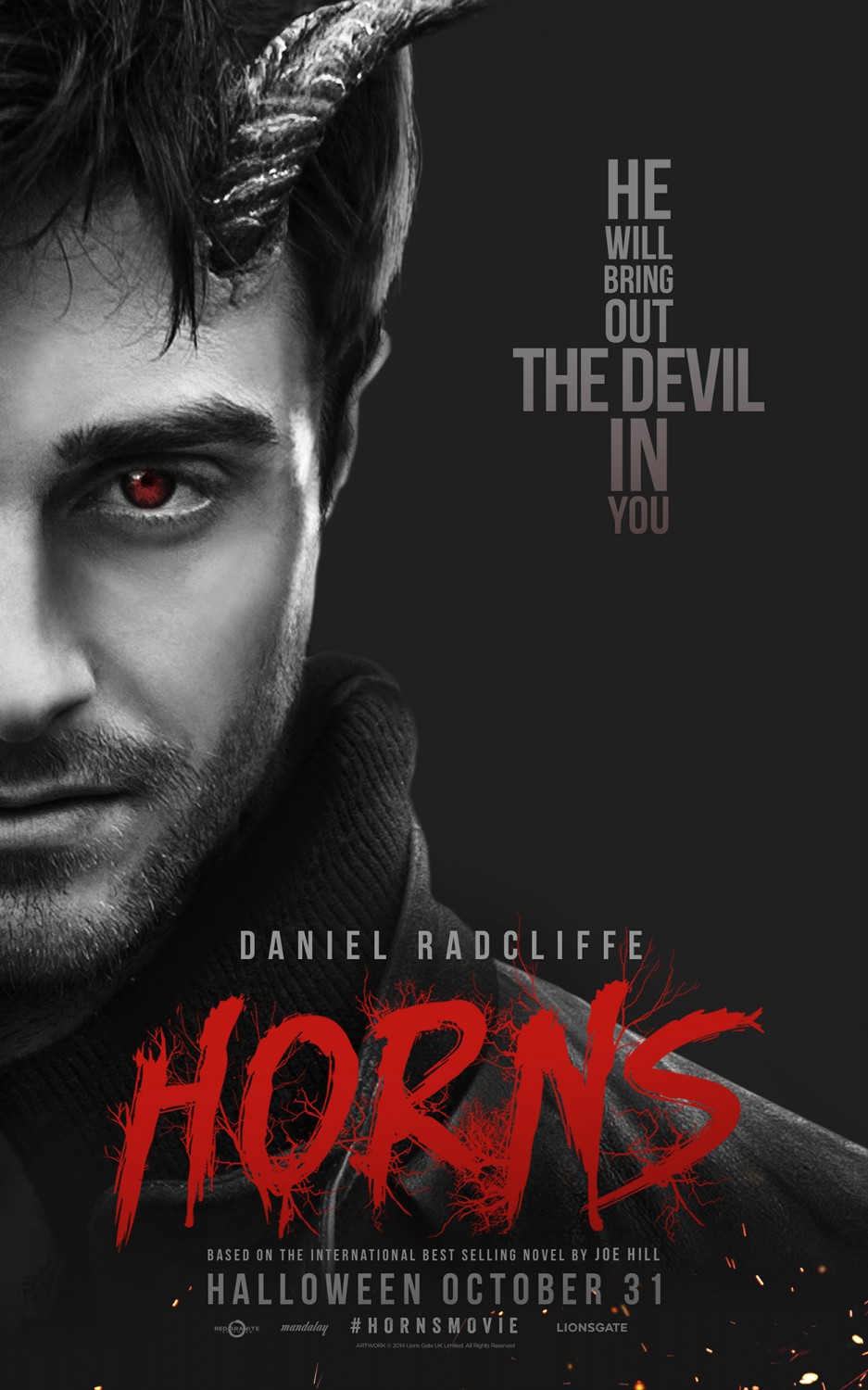Horns is an odd-duck.
Written by Keith Bunin, directed by Alexandre Aja based on a novel by Joe Hill, Horns is a supernatural love/detective/ story (spoilers follow). Ignatius (Ig or Iggy) Perrish (Daniel Radcliffe) is accused of murdering his childhood sweetheart Merrin Williams (Juno Temle). Demonized (the operative word) by the press and looking for support, Ig continues a frustrated process of clearing his name and mourning his beloved. Getting nowhere, he drowns his sorrows and falls into bed with an old friend Glenna Shepherd (Kelli Garner). The morning after Ig wakes to discover the titular horns sprouting from his head. From there, he discovers that the people he encounters while not all noticing, or making much of his new look, bear their souls with chastening and disturbing honesty. Finding the investigations hitherto ineffective, Ig takes to investigating into his own hands (or horns) to clear his name and uncover the truth of Mirrin’s death.
The film does comfortably fit into any particular genre. There are in fact a number of scenes that are uncomfortable, some comic, some tragic, and some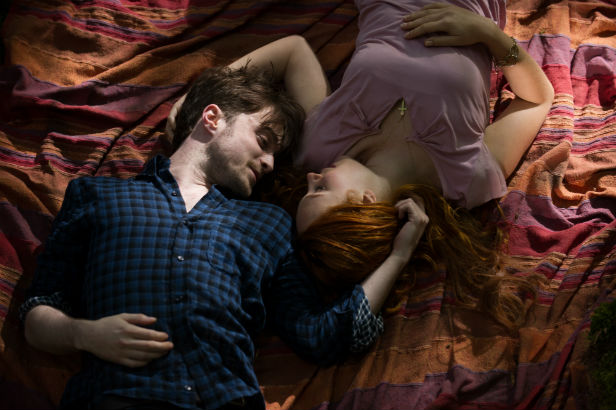 both at the same time. The film’s not yielding to a category(ies) is not a bad in and of itself, although it might explain why the critical reception has been lukewarm. Still the film is not without charm or intrigue.
both at the same time. The film’s not yielding to a category(ies) is not a bad in and of itself, although it might explain why the critical reception has been lukewarm. Still the film is not without charm or intrigue.
The film has great tonal variety which is viable to annoy and engage in equal measure. A flashback sequence Ig picking out a ring is preceded by a fist fight between rival journalists vying for an interview with our accused (anti)hero: at one moment satirical, at another sentimental (in the best sense of the word, of course). The effect of the horns is similarly mixed; the honest they provoke provide moments of pathos and levity, occasionally at Ig’s expense. Some will enjoy the variety, some will admire the ambition, and some will dub the doings jarring or even undisciplined (though the latter is a misnomer).
The mixture of tone is mirrored in the mix of expectations. The film plays with it throughout, shifting blame on and off of Radcliffe’s character and casts suspicion over the supporting cast. Indeed, the day before his horns appear he, provoked by a predatory group of journalists who follow him where ever he goes, causally asks the devil to punish Mirrin’s killer. Further more he remarks that if he did anything to hurt Mirrin he is: “a monster”. The film is littered with ostensibly throw-away dialogue that brims with portent, which both builds tension and informs character without becoming labored or crass.
I really liked this movie. If nothing else the sheer (aforementioned) ambition of a project like this is to be applauded. The way the film treats both time and genre makes for a film that is both a love story and a whodunit, spilling over into a snuff-movie, and there are elements of romance and comedy, both broad and dark. Temple’s role demonstrates an impressive range. In the central role, Radcliffe sells the horns as symbol of public vilification and a personal vendetta. In tandem with a smart and subtle script, the film plays upon the definitions and distinctions of sin and guilt, vengeance and justice (both perceived and actuarial). Ig’s deformity depicts all of these their corrosive effects within the individual and wider community. Yet the 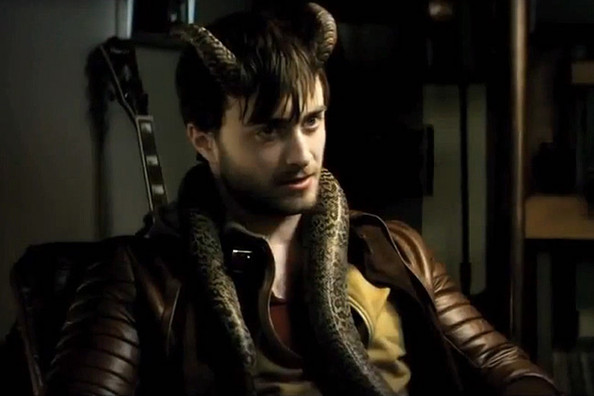 film at no point becomes didactic. In fact the horns, far from being a gimmick, advance the plot and flesh out all the characters, even those in a tertiary role.
film at no point becomes didactic. In fact the horns, far from being a gimmick, advance the plot and flesh out all the characters, even those in a tertiary role.
The critical cold shoulder is in part due to the multifarious shifts (generic/ tonal) that many will find jarring. Some of it can be passed over as snobbery, what with Aja’s previous work including Piranha 3D (2010). However, the film does itself no favors when it comes marketing, where it is billed as a Halloween Horror film. The score too is a troublesome.
Not that the score is bad. On the contrary, the problem is that it features the modern classic Heroes by David Bowie. Using such a great and iconic song with impunity is difficult enough. However, said song was also used in Stephen Chbosky The Perks of Being a Wallflower (2012). This isn’t just another movie adapted from another novel released two years ago, but it also co-stars another Potter alumnus, Emma Watson. Having been reminded of one movie your mind is immediately drawn to making other comparisons. For example, the way that the film treats time is strikingly similar to Christopher Nolan’s Memento (2000) a comparison that has potential to back-fire.
On the other hand, in all its oddity the film recalls Kick-Ass (2010), and for that may prove a similarly slow burn that is ultimately embraced.
For all its limitations, the film aims high and for the most part succeeds. Some will be put off but many will enjoy it in all its twisted spectacle.
7/10

